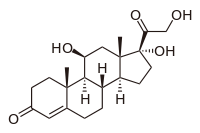
Serum drug levels of biologic agents in the management of rheumatoid arthritis and spondyloarthritis: a systematic review
Sign Up to like & getrecommendations! Published in 2018 at "Rheumatology International"
DOI: 10.1007/s00296-018-4022-4
Abstract: The utility of monitoring drug levels in rheumatoid arthritis and spondyloarthritis patients on biological therapy is called into question. The objective was to study relevant clinical questions on the topic, i.e., (1) whether drug levels… read more here.
Keywords: drug; arthritis spondyloarthritis; rheumatoid arthritis; drug levels ... See more keywords

Drug interaction as a predictor of direct oral anticoagulant drug levels in atrial fibrillation patients
Sign Up to like & getrecommendations! Published in 2018 at "Journal of Thrombosis and Thrombolysis"
DOI: 10.1007/s11239-018-1738-7
Abstract: Data are limited on the effects of drug interactions on direct-acting oral anticoagulant (DOAC) levels. We evaluated the effects of the use of interacting drugs on DOAC levels in patients with atrial fibrillation (AF). We… read more here.
Keywords: drug levels; interacting drugs; oral anticoagulant; drug ... See more keywords

Appropriateness of direct oral anticoagulant dosing and its relation to drug levels in atrial fibrillation patients
Sign Up to like & getrecommendations! Published in 2019 at "Journal of Thrombosis and Thrombolysis"
DOI: 10.1007/s11239-019-01815-y
Abstract: Direct oral anticoagulants (DOACs) are commonly administered at a level that is lower than that recommended by dose reduction criteria. This raises concern regarding the adequacy of anticoagulation achieved. To evaluate the relationship between inappropriate… read more here.
Keywords: atrial fibrillation; doac; drug levels; direct oral ... See more keywords

P084 The relationship between self-reported adherence, drug levels and tumour necrosis factor inhibitor response in psoriatic arthritis
Sign Up to like & getrecommendations! Published in 2023 at "Rheumatology"
DOI: 10.1093/rheumatology/kead104.125
Abstract: It is not currently possible to accurately predict tumour necrosis factor inhibitor (TNF-i) response in psoriatic arthritis (PsA). In rheumatoid arthritis, suboptimal adherence to TNF-i and reduced drug levels have been associated with decreased response.… read more here.
Keywords: response; adherence; drug levels; self reported ... See more keywords

Correlation Between Ultrasonographic Response and Anti–Tumor Necrosis Factor Drug Levels in Crohn's disease
Sign Up to like & getrecommendations! Published in 2022 at "Therapeutic Drug Monitoring"
DOI: 10.1097/ftd.0000000000000988
Abstract: Background: Ultrasound is valuable in tight control algorithms for Crohn's disease (CD). However, the correlation between ultrasonographic response and anti–tumor necrosis factor (TNF) drug levels remains unknown. Elucidating this correlation would be helpful in optimizing… read more here.
Keywords: anti tnf; ultrasonographic response; drug levels; correlation ... See more keywords

OP0110 Association of pharmacological biomarkers with treatment response and long-term disability in patients with psoriatic arthritis: results from outpass
Sign Up to like & getrecommendations! Published in 2017 at "Annals of the Rheumatic Diseases"
DOI: 10.1136/annrheumdis-2017-eular.2030
Abstract: Background Up to 40% of patients with inflammatory arthritis on TNF-α inhibitor (TNFi) treatment fail to respond either due to primary inefficacy or loss of response. One explanation is immunogenicity leading to the development of… read more here.
Keywords: treatment response; drug levels; treatment; drug ... See more keywords

FRI0707 Drug levels and antidrug antibodies in the development of paradoxical psoriasis and palmoplantar pustulosis
Sign Up to like & getrecommendations! Published in 2017 at "Annals of the Rheumatic Diseases"
DOI: 10.1136/annrheumdis-2017-eular.3635
Abstract: Background The pathogenesis of psoriasis and palmoplantar pustulosis induced by Tumor Necrosis Factor inhibitors (TNFi) is largely unknown. Only one study, in 9 inflammatory bowel disease patients, investigated the relation with infliximab drug levels in… read more here.
Keywords: drug; psoriasis; drug levels; palmoplantar pustulosis ... See more keywords

PTH-088 Prevalence of low drug levels and anti-drug antibodies in an unscreened population of patients with inflammatory bowel disease receiving infliximab
Sign Up to like & getrecommendations! Published in 2017 at "Gut"
DOI: 10.1136/gutjnl-2017-314472.487
Abstract: Introduction Infliximab (IFX) is widely used for induction and maintenance of remission in inflammatory bowel disease (IBD). It has been suggested that monitoring drug levels and antibodies to infliximab (ATI) may allow treatment optimisation. The… read more here.
Keywords: bowel disease; pth 088; drug levels; inflammatory bowel ... See more keywords